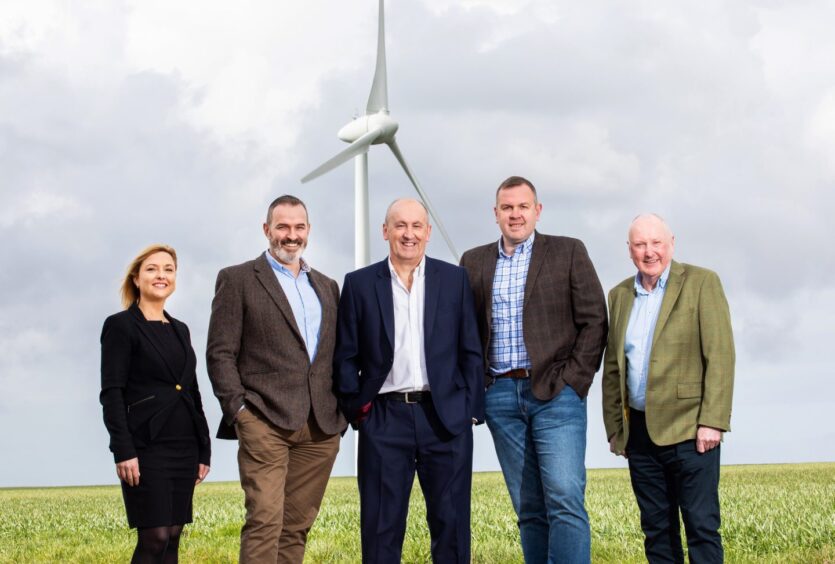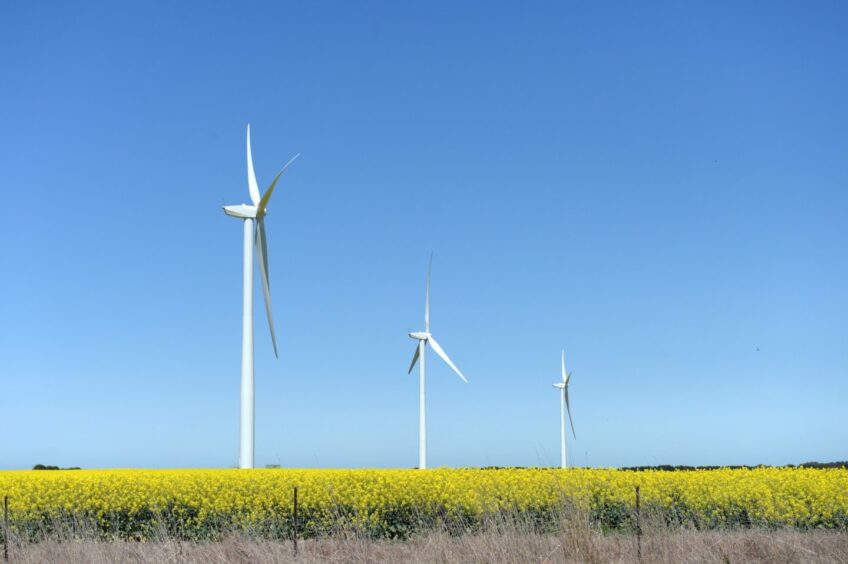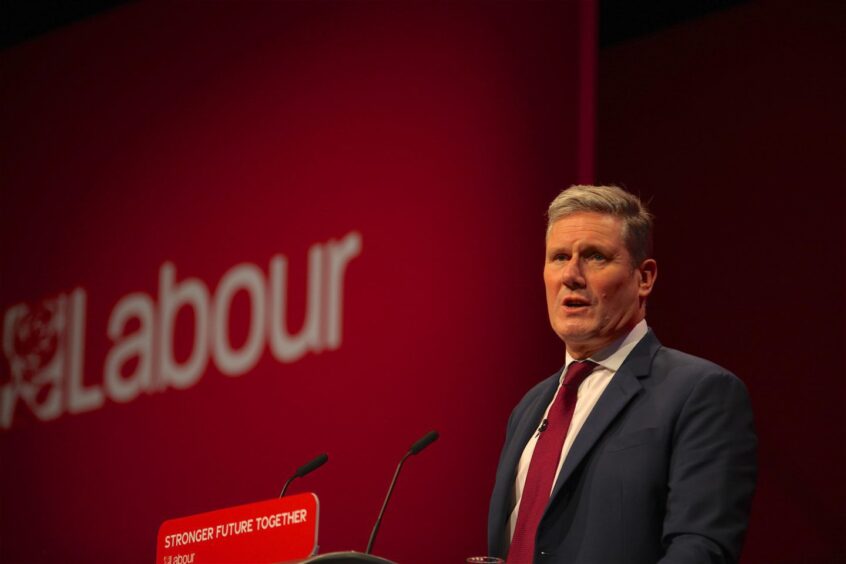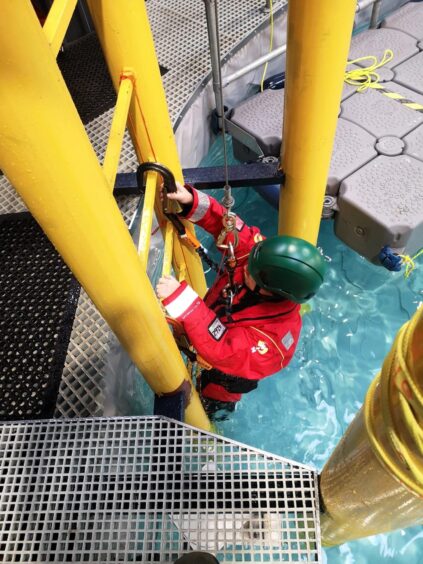
Following a successful 2023 when it acquired three Scottish companies and another in the United States Aurora Energy Services is looking down under.
The highlands firm always had acquisitions in mind to meet its £100 million goal by the end of its first five years in business, chief executive Doug Duguid said.
Aurora Energy employs 275 staff in Scotland, the US and Australia and was forecasting first-year revenues of £30 million as part of the business strategy.
Mr Duguid told Energy Voice: “We’ve done four deals since we started, and we’re beginning to grow all of those businesses organically.”
However, Aurora Energy is not slowing down its acquisition spree in 2024, as the firm’s chief executive explained: “We are looking at three other deals possibly this year, one which is very close, and I think that’ll obviously add capability and in one case, we’ll add a new geography.”
With upcoming acquisitions, the goal of reaching £100 million “in the next three to five years, I think should be reasonably readily available to us,” said Mr Duguid.
As Aurora is still in the process of arranging its planned three acquisitions for 2024 “the information Doug Duguid could share was “very limited” as the business is caught up in “confidentiality agreements or NDAs.”
However, the firm’s boss did share that one of the three businesses in question is based in Australia, “a territory that we’re familiar with from our past experience in PSL and EnerMech,” he added.
In addition to Aurora setting its sights on the Australian wind sector it also looks to make two further acquisition deals.
“The other two are relatively small specialist businesses in the UK,” Mr Duguid said.
The former EnerMech chief executive shared Aurora’s aim of tapping into Australia’s “rapidly growing wind business.”
The country’s government is aiming to provide 82% of its grid needs from renewable power by 2030.
Australian Energy Market Operator (AEMO) has said the country may add up to 20 GW of wind generation by that point.
Australia’s Clean Energy Council has tracked 50 GW of announced projects around the country.
When asked what made Australia so appealing to Aurora, Mr Duguid said: “There are two things about Australia that are really appealing.
“So, we have a lot of knowledge of working there, it’s a very stable economic and fiscal regime, and there’s already an established and significant onshore wind market and that’s growing. There’s a lot of new wind farm developments being licenced.”
He added that there is a “significant amount” of offshore wind opportunities coming up in South Australia that Doug Duguid and Aurora want to take advantage of.
In addition to the opportunities present in Australia, Aurora also sees an acquisition down under as an opportunity to set up “a base for us to work in the rest of Asia over the next few years,” the firm’s boss added.
“Given our previous business experience, we run by region because it was in the same time zone and that supported engineering plans and project management across a region rather than trying to do it globally. So, I think we feel like there’s a fantastic opportunity down there.”
In addition to bringing the opportunities that come with accessing new regions, Aurora has also spotted a gap in the market down under.
“There’s not, as of yet, a huge amount of competition,” the Aurora boss explained, “if you look at the market there, there are some onshore players, there are one or two people who are setting up for offshore, but particularly in blade inspection and repair, there’s a limited amount of competition.
“That’s always an attractive market.”
‘What we need is stability in a fixed fiscal regime’
When questioned on his comments around Australia having a “very stable economic and fiscal regime” and how that stacks up to the state of politics in the UK, Mr Duguid answered: “That wasn’t the driver for our international expansion.
“We’ve always felt, and if you look at our previous two businesses, what gave them stability and growth was multiple services in multiple geographies in and in different end markets.”
However, he added: “There’s no question that the UK is very challenged, even with the number of changes there have been and the uncertainty that’s created.”
Recently energy, and more specifically oil and gas, has been making headlines as politicians lay out their policies on the future of the North Sea.
The Labour Party’s proposals would extend the life of the levy to the end of the next parliament, hike the headline rate of tax from 75% to 78% and, crucially, remove any investment allowances.
That latter point has been seen as a major barrier to future investment, with trade body Offshore Energies UK (OEUK) estimating £26bn of economic value will be lost.
Additionally, investment bank Stifel said 100,000 jobs could be lost in a “worst case scenario” under Labour’s windfall tax plans.
“From my perspective what we need is stability in a fixed fiscal regime, so that those that are investing can see far enough ahead to understand what kind of return they’re going to be able to achieve on their investments,” Doug Duguid said.
He said that the “concern” with shifting taxation policy relating to UK oil and gas operators is that “it’s another change” that makes it more difficult for investors to see a return on their investment.
Explaining that he is still involved in oil and gas businesses, Mr Duguid how the recent political turbulence has impacted the UK’s hydrocarbons industry.
“There has been a bit of a recent uptick over the last year or so, but the recent announcements have just made the investment environment very uncertain,” he commented.
The energy transition is ‘going to take a longer period than it’s being predicted by many’
In addition to the fiscal impacts that shifting taxation policy will have on North Sea oil and gas, Mr Duguid sees the need to keep the sector healthy as he believes the country will be reliant on it for longer than is currently predicted.
The Aurora boss said: “That’s got to be a concern for everybody because for me the transition will take time, there’s all sorts of time frames being quoted for when we can get the net zero, but in my mind that transition is going to take a longer period than it’s being predicted by many.
“That means that we need to retain our ability to produce hydrocarbons until that transition can take place in a secure and safe way.
“It hasn’t driven our internationalisation, but it is a concern because a big number of our staff and employees are still in oil and gas and yes, we will be able to transition them over, but it’s a five to 10-year period, not a two to three-year period.”
Aurora became the become the latest member of the Inverness and Cromarty Firth Green Freeport consortium.
The firm also recently received a £20 million investment from the Scottish National Investment Bank to “expand its network of regional training hubs and workshop facilities.”
The cash is set to support the country’s green energy supply chain and enable Aurora to service projects across Scotland’s renewable energies sector.
Aurora also plans to develop a “globally recognised” apprenticeship scheme aimed at training those new to the industry.
The multi-million-pound investment has been part-financed by capital from the Just Transition Fund, allocated to the Bank from the Scottish Government in April 2023.
Aurora has opened a renewables training facility in its native Inverness which added to its existing spaces in Aberdeen, Wick and Huntly that are focused on engineering and fabrication work within the renewables sector.
Recommended for you


 © Supplied by Aurora Energy Servic
© Supplied by Aurora Energy Servic © Bloomberg
© Bloomberg © Supplied by Shutterstock
© Supplied by Shutterstock © Supplied by Aurora Energy Servic
© Supplied by Aurora Energy Servic © Supplied by Aurora Energy Servic
© Supplied by Aurora Energy Servic